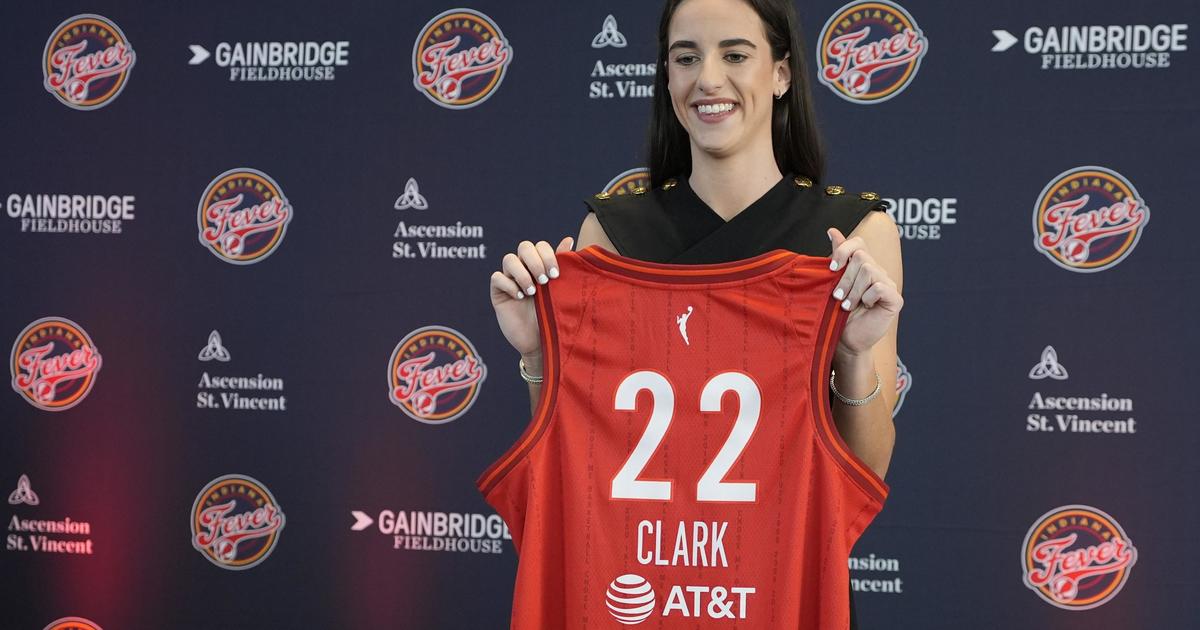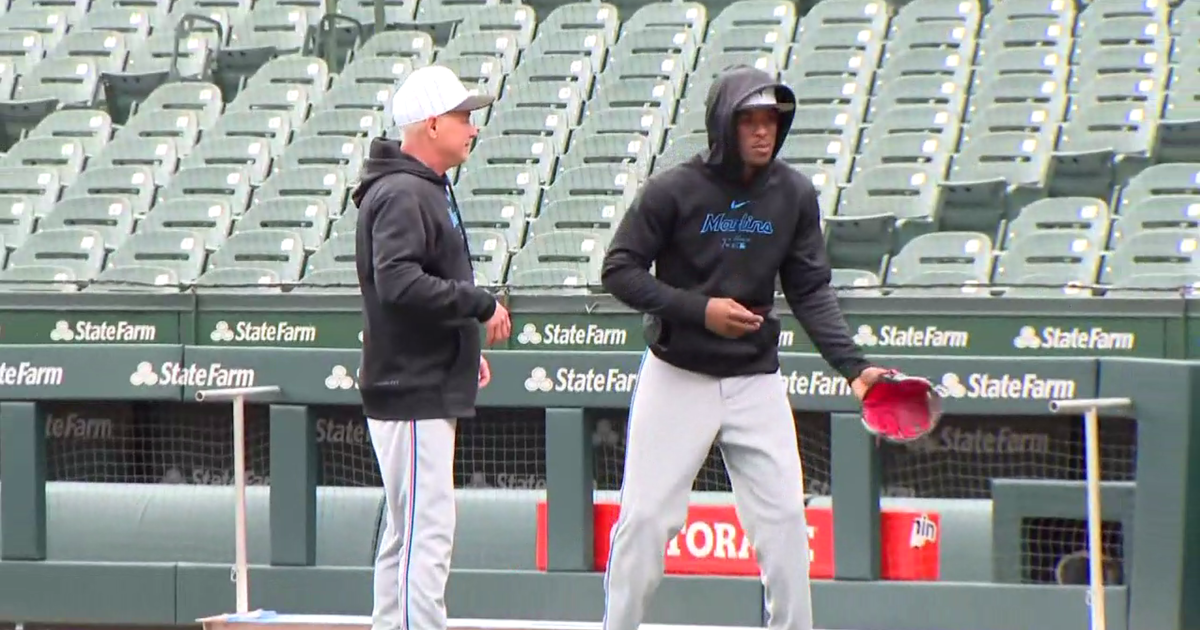Baffoe: Marian Hossa's Hockey Ending A Reminder That Sports Can Be So Cruel
By Tim Baffoe--
(CBS) "Sports are bad." When something gut-wrenching occurs in the sports world — some especially unfair way for a team to lose or a player to fall just short or when a particularly special athlete suffers some extensive injury — I will tweet out some version of that statement.
Of course, sports aren't bad. For every bit of heartbreak and empathy they draw from us, they infuse us with 10 times more excitement and joy and positive memories. Hence, why we seek certain asylum in them. If sports were a predominant abuser, they'd be abandoned … or become some strange sadomasochistic fetish — if you're a fan of, say, the Toronto Maple Leafs or New York Knicks or Cleveland Browns — but that's a psychological discussion for another time. (As a Cubs fan, I'm now better than all those people, obviously.)
But, oh, when sports are tragic, they're really tragic. Even at their most awful, the humanity that comes with seeing another human being — even one much larger and faster and wealthier than us — drained of his or her very being or writhing in pain equalizes them with us and is strangely narcotic in the way you will click against logic on a video posted to social media titled "OHMIGOSH THIS WILL TOTALLY MAKE YOU CRY."
Sometimes, though, sports just suck. They're truly bad. There's no subconscious stimulation to get from the unfortunate.
On Wednesday, Blackhawks forward Marian Hossa announced that he will miss the entire 2017-'18 NHL season with a skin disorder. While he may not announce his retirement for quite some time, Hossa's career is over, a source told 670 The Score's Jay Zawaski.
"Over the course of the last few years, under the supervision of the Blackhawks medical staff, I have been privately undergoing treatment for a progressive skin disorder and the side effects of the medications involved to treat the disorder," Hossa said in a statement. "Due to the severe side effects associated with those medications, playing hockey is not possible for me during the upcoming 2017-18 season. While I am disappointed that I will not be able to play, I have to consider the severity of my condition and how the treatments have impacted my life both on and off the ice."
In Hossa's case, sports are especially cruel because it's hockey that's stopping him from playing hockey. What he's dealing with isn't uncommon, but outside of locker rooms, it isn't especially well-known. Though Hossa hasn't publicly mentioned a specific diagnosis, it sounds like he has what players like former Blackhawk and current Minnesota Wild broadcaster Tom Reid call "the gunk." Reid has previously described the condition caused by sweat and friction with equipment that would cause bedsheets to stick to his blistery skin and broken skin to bleed through his street clothes and forced his retirement to
From the Chicago Tribune in 2015:
Reid visited a dermatologist and tried every ointment he could, to no avail. He said when he called the NHL Players Association to inform officials his doctors had told him it was a work-related injury and he should be eligible for compensation, they hung up on him.
"'I didn't have the star power,' he said. 'So I was left hanging out to dry.'"
Former NHL goalie Gilles Gilbert talked about suffering from "the rash" to the New York Times back in 1982. A doctor diagnosed him with atopic dermatitis, "a superficial inflammation of the skin made more infectious by irritation."
''My worst enemy, I don't want him to have it,'' Gilbert said. ''Maybe broken legs, but not the rash. You need boxing gloves when you go to sleep. It's worse than a sunburn. It really, really itches. It drives you crazy. When you start sweating, it's worse.''
Gilbert and Reid were teammates with the Minnesota North Stars when Reid retired. Back then, Gilbert estimated that 15 percent of NHL players had some skin condition caused by playing. His condition became treatable with pills. Unfortunately, such medications don't have universal effects, as evidenced in Hossa's case.
"Because of the dramatic nature of the medications required and their decreasing effectiveness, we strongly support his decision not to play during the 2017-18 season," Blackhawks team physician Dr. Michael Terry said. "We feel in the most certain terms this is the appropriate approach for Marian in order to keep him functional and healthy in the short term and throughout his life."
Knowing that this injury isn't some freak occurrence with the Blackhawks winger and future Hall of Famer still doesn't make it any less cruel. What's keeping Hossa off the ice isn't normal wear of all human bodies with age and magnified in sport. Hossa is sports-Jurassic at age 38 but amazingly still valuable. Much of the humorous praise of him is that he's a cyborg, because he defies the usual ratio of age-to-remaining skill level of sports, particularly hockey.
Make it a bad knee, damn it. If it was even an accumulation of head injuries, certainly dire in terms of his long-term health and not to be wished for, at least that's tough but fair in the spectrum of sports justice. Instead, he's being robbed beyond deterioration, and it's unfair.
This is a terrible catch-22. What Hossa does better than almost anyone else in the world is preventing his body from doing that very thing. Imagine something you love making you incapable of participating in it.
And then tell me that sports aren't bad.
Tim Baffoe is a columnist for CBSChicago.com. Follow Tim on Twitter @TimBaffoe. The views expressed on this page are those of the author, not CBS Local Chicago or our affiliated television and radio stations.



